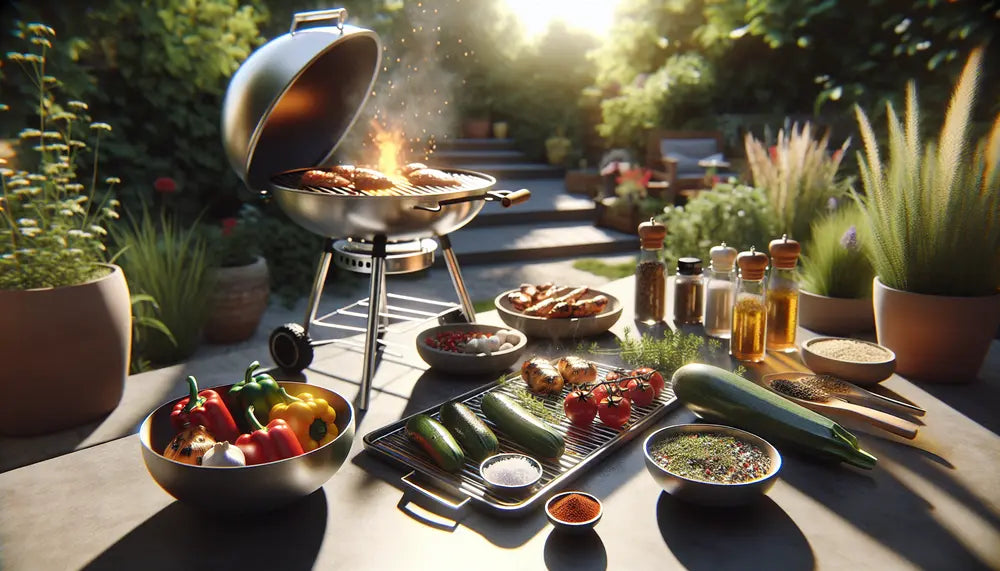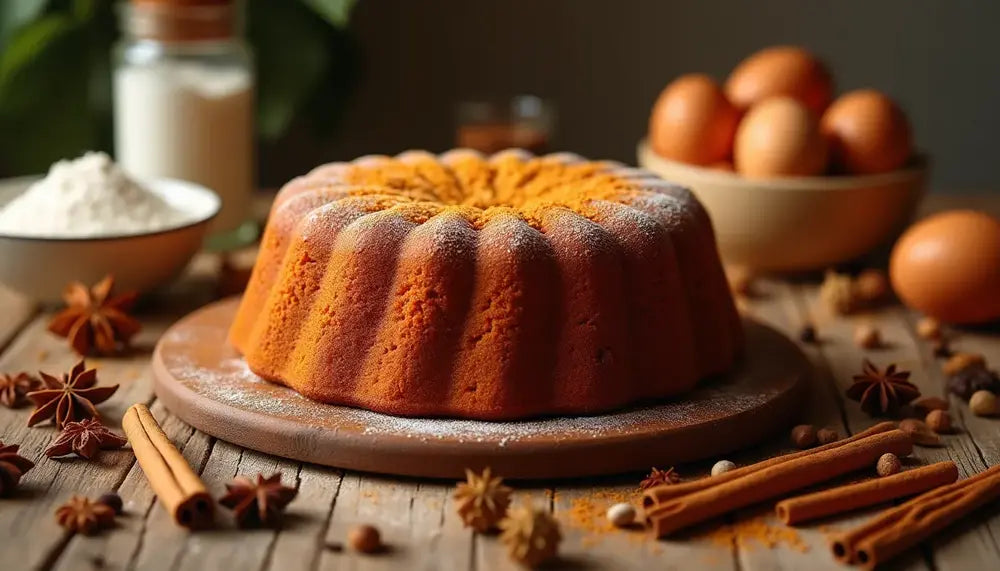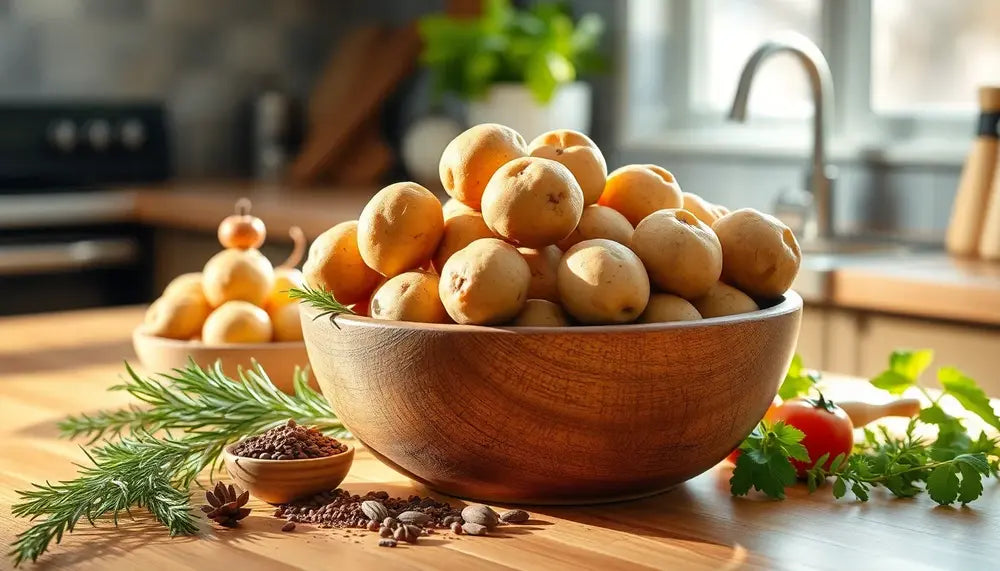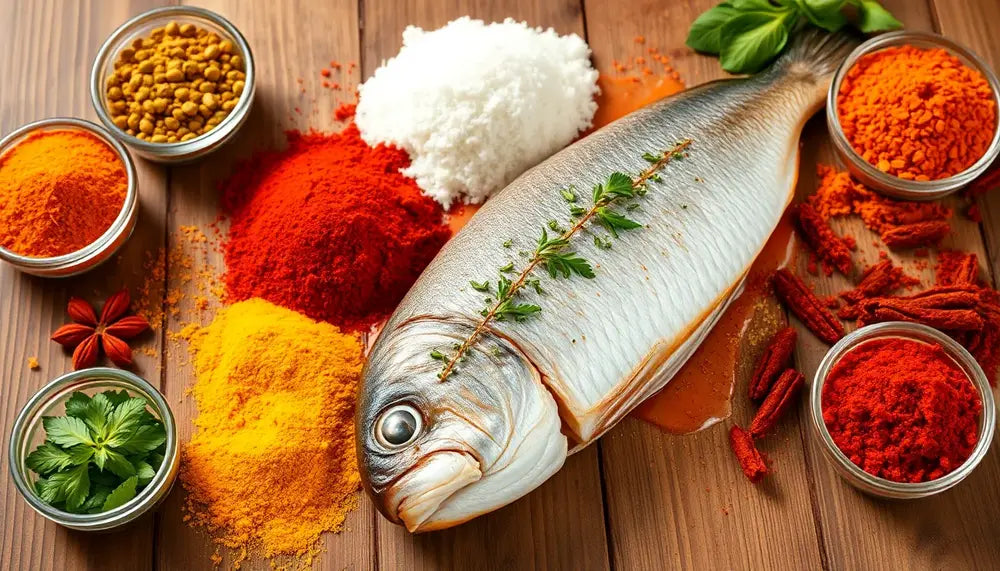The basics: Which spices are essential for grilling
To achieve the **perfect barbecue experience**, choosing the right seasonings is crucial. Some spices are indispensable because they bring out the aroma of the grilled food particularly well and ensure the typical grilled taste.
Salt and pepper are definitely among the **classics** when grilling. Salt enhances the flavor of the food, while pepper provides a pleasant spiciness and depth. Both spices form the basis for many spice mixtures and should not be missing in any kitchen.
Paprika, whether sweet or spicy, adds a smoky note that pairs particularly well with meat. Chili adds heat and is an excellent choice for those who like things fiery. Garlic powder offers a savory depth that is essential in marinades and rubs.
Thyme and rosemary bring a Mediterranean atmosphere to the grill with their resinous and slightly bitter notes. These herbs can develop their full aroma, especially with lamb or poultry. Dill is recommended for fish dishes, as its fresh and slightly sweet nature ideally complements the aroma of seafood.
In summary, it can be said that the right selection and combination of these spices contribute significantly to intensifying the taste of your grilled food and thus ensure an unforgettable grilling experience. Experiment with these basic seasonings to find your personal flavor profile for the perfect barbecue.
The correct use of spices for optimal taste experiences
How you use your spices is just as important as how you choose them. In order to guarantee **optimal taste experiences**, a few basic rules should be observed that have proven to be particularly effective over time.
Start seasoning your grilled food **early**. Especially with larger pieces of meat, it can be helpful to marinate or rub them a few hours before grilling so that the seasonings can penetrate deeply into the meat. But be careful: Salt should only be applied shortly before grilling, as it draws moisture out of the meat and it could otherwise become dry.
Use a **measuring system** when seasoning to ensure consistency. For example, one teaspoon (approx. 5 ml) of spice mixture per 500g of meat. Here you can work with a ratio that is tailored to your specific taste preferences:
| Spice | Quantity (per 500g meat) |
|---|---|
| Paprika | 1 tsp |
| Black pepper | ½ tsp |
| Garlic powder | ½ tsp |
| Thyme | ¼ tsp |
When turning the grilled food, it is advisable to use **tongs** instead of a fork in order to minimize the loss of juice and keep the spices on the meat. You should also make sure not to turn the grilled food too often to ensure even heat distribution and thus optimal crust formation.
Remember that the correct use of spices is an art that requires sensitivity. Experiment with quantities and combinations to develop your own grilling secrets that will take you to the next level.
Make your own marinades and rubs: simple recipes for barbecue fans
Making your own Marinades and Rubs offers barbecue fans the opportunity to create individual flavors and take their grilled food to a new level. Here are some easy recipes you can try:
Basic recipe for a BBQ marinade
- 100 ml olive oil
- 50 ml balsamic vinegar
- 2 tbsp honey
- 2 cloves of garlic, pressed
- 1 teaspoon paprika powder
- ½ tsp black pepper
- ¼ tsp salt
Mix all ingredients in a bowl until the honey is completely dissolved. Put the grilled food in the marinade and let it sit in the fridge for several hours, preferably overnight.
Smoky rub for perfect meat enjoyment
- 3 tbsp paprika powder
- 1 tbsp salt
- 1 tbsp garlic powder
- 2 tsp onion powder
- 1 teaspoon ground black pepper
- 1 tsp ground cumin
- ½ tsp cayenne pepper
Mix all ingredients thoroughly. Sprinkle the meat evenly with the rub and rub it in with your hands so that the spices stick well. Then let it rest for at least an hour before grilling.
Both recipes can be flexibly adapted - depending on your personal taste, you can add more or less of the respective spices. Experimenting yourself often leads to the best results and makes every barbecue evening a special event.
Remember, the thing about homemade marinades and rubs is the ability to play with different flavors and discover your own favorite blends. So, dare to be creative and delight your guests with unique taste experiences!
Vegetarian and vegan options: spices that add character to every vegetable
Vegetarian and vegan grilled dishes are becoming increasingly popular, and the right spices can transform even simple vegetables into a highlight. Here are some suggestions for enhancing the aroma of vegetables and plant-based proteins:
Spice mix for grilled vegetables
- 2 tsp paprika powder
- 1 tsp sea salt
- 1 tsp garlic powder
- ½ tsp thyme, dried
- ½ tsp rosemary, dried
- ½ tsp black pepper
Combine all ingredients and sprinkle over vegetables before grilling. This gives a nice crust and intensifies the natural flavor of the vegetables.
Curry rub for tofu and tempeh
- 3 tbsp curry powder
- 1 tbsp turmeric
- 1 tbsp coriander, ground
- 1 tsp sea salt
- ½ tsp cayenne pepper
The combination of curry and turmeric gives tofu or tempeh an exotic touch and an appealing golden color. Simply cut the vegetable protein into thin slices, drizzle with olive oil, sprinkle with the spice mixture and grill.
The wonderful thing about these spice mixtures is that they... easy to customize are – adjust the amounts to your own taste and experiment with additional herbs or spices to find your own perfect blend.
Ultimately, the right spices can give any vegetarian or vegan dish a distinctive character and deep flavor that can also convince meat lovers. Use the power of spices to enrich your barbecue evenings and delight all your guests.
Season meat perfectly: tips for steak, chicken and more
Seasoning meat is an art that has the potential to transform a good steak, chicken or other meat into an outstanding dish. Here are specific tips on how to optimally season meat for grilling to make every bite a delight.
Season steak: Less is more
- 1½ tsp coarse sea salt per 500g steak
- 1 teaspoon freshly ground black pepper
- Optional: ½ tsp smoked paprika for a smoky note
Apply the salt and pepper evenly to both sides of the steak, then let the meat rest at room temperature for about 40 minutes. This allows the seasonings to penetrate the meat and relax the muscle fibers, resulting in a more tender steak.
Marinate chicken aromatically
- 200 ml olive oil
- Juice from one lemon
- 2 cloves of garlic, finely chopped
- 1 tsp thyme
- 1 teaspoon rosemary
- ½ tsp salt
- ¼ tsp pepper
Mix all ingredients in a bowl to create a marinade. The chicken should be marinated for at least 1 hour, preferably overnight. The acidity of the lemon helps tenderize the meat, while herbs and spices add intense flavors.
Spicy Tips for Pork
- 3 tbsp brown sugar
- 2 tbsp paprika powder
- 1 tbsp salt
- 1 tbsp black pepper
- 1 tsp cumin
Mix the ingredients into a rub mixture and apply generously to the pork. The sweetness of the sugar caramelizes under heat to form a delicious crust, while paprika and cumin contribute deep flavors.
It's important to find the right ratio of salt and spices to complement the natural flavor of the meat without overpowering it. Experiment with these basics and adjust the quantities to suit your personal taste to achieve the perfect grilling result every time.
Grilling fish and seafood: Which spices are best?
Fish and seafood are known for their delicate meat structures and require finely balanced seasoning to emphasize their natural flavors without dominating them. Here are some suggestions for spices that go particularly well with sea creatures.
Light and fresh spices for fish
- dill
- Lemon peel
- Parsley
- Salt
- White pepper
The fresh herbs together with lemon peel give every fish fillet a wonderful freshness. A pinch of salt and white pepper are enough to bring out the subtle flavor nuances. Simply spread the spices on the fish and grill it carefully to preserve its tender texture.
Seasoning mix for grilled shrimps
- 1 tbsp olive oil
- 1 teaspoon paprika powder
- ½ tsp garlic powder
- ¼ tsp cayenne pepper
- ¼ tsp salt
Mix the ingredients in a small bowl and brush over the shrimp. The smoky sweetness of the paprika powder together with the spice of the cayenne pepper goes perfectly with the sweet flesh of the shrimp.
Herbal mixture for mussels and oysters
- 1 tbsp finely chopped thyme
- 1 tbsp finely chopped rosemary
- 2 tablespoons butter, melted
- 1 small garlic clove, finely chopped
- Salt and pepper to taste
Mix the herbs with the garlic and the melted butter. This mixture is great for giving mussels and oysters an extra touch of flavor before grilling while preventing them from drying out.
These specially tailored spice mixtures ensure that fish and seafood can develop their very own character on the grill. Adjust the spice amounts depending on your preferences and enjoy the exquisite aroma of freshly grilled seafood.
The importance of the quality of spices for your barbecue
The quality of the spices plays a crucial role in the success of a barbecue. High-quality spices can make the difference between a good and an excellent grilling result.
High quality spices are often more aromatic and have one more intense taste than their inferior counterparts. This means you need to use less of the seasoning to achieve the desired flavor profile, which can even be cost-effective in the long run.
In addition to the taste, the quality of the seasoning also influences the Health. High-quality seasonings are usually free of unnecessary additives such as artificial flavors, colors or preservatives that are often found in cheaper versions. This purity not only ensures better taste, but also a healthier meal.
When purchasing spices, it is recommended to Origin and freshness to pay attention. Spices purchased directly from sources that promote sustainable and ethical farming practices often offer better quality. In addition, spices should ideally be purchased in small quantities as they lose their intensity over time. Store them in a cool, dark place to maximize their lifespan and potency.
Investing in quality spices is not just a question of taste, but also of Sustainability and Health. Understanding and appreciating the origin and quality of your spices can greatly improve your grilling experience and make every barbecue a special treat.
Creative spice mixtures: Experimentation for advanced grill masters
Advanced grill masters know that experimenting with... creative spice mixtures can pave the way to unique taste experiences. Here are some ideas that can make your creations stand out from the crowd.
An Asian-inspired blend
- 2 tbsp sesame seeds
- 1 tbsp ground coriander
- 1 tbsp ground fennel
- 1 tsp chili flakes
- ½ tsp ground cinnamon
This mixture gives your grilled food an exotic touch and goes particularly well with beef or chicken wings.
Mediterranean herbal mixture
- 3 tbsp dried oregano
- 2 tbsp dried basil
- 1 tbsp dried thyme
- 2 tsp garlic powder
- 1 tsp sea salt
- 1 tsp black pepper
Ideal for lamb or vegetables, this herb blend brings the sunny flavors of the Mediterranean straight to your grill.
Fiery Cajun blend
- 3 tbsp paprika powder
- 1 tbsp garlic powder
- 1 tbsp onion powder
- 1 tbsp dried oregano
- 1 tbsp cayenne pepper
- ¼ tbsp black pepper
- ¼ tbsp thyme
This spicy combination goes great with seafood and chicken to add a bold, zesty flavor to every bite.
The art of experimentation lies not only in the selection and combination of spices, but also in dealing with the flavors to achieve a harmonious balance. It's the creative play with these flavors that transforms a barbecue from an ordinary meal into a culinary event. So, let your creativity run wild and create mixtures that will delight your guests.
Spice safety and storage: How to keep your spices fresh
The Security and storage of spices are essential to preserve their freshness and aroma over a longer period of time. Proper storage not only helps preserve flavor, but also prevents loss of nutrients and the formation of mold or bacteria.
Basic rules for storing spices
- Always include spices airtight containers Store to minimize exposure to moisture.
- Store your spice containers in one cool, dark place. Direct sunlight and heat can destroy the essential oils in the spices.
- Avoid storing spices over the stove or near other heat sources as heat can quickly degrade the flavor.
- Check regularly Signs of spoilage such as moisture ingress or mold growth and discard seasonings that show signs of decay.
A useful tip for checking the freshness of your spices is to Smell test: Spices that lose their scent usually no longer taste optimal. Spices should not last longer than one to three years be stored, depending on the type of spice. Whole spices last longer than ground spices.
By following these simple storage and safety guidelines, you can ensure that your spices remain at their maximum potency and always enrich your dishes with intense aroma and fresh flavors.
Conclusion: How the right spices can revolutionize your grilling
The right selection and application of seasonings can transform your barbecue from an ordinary event to an extraordinary culinary experience. Investing in high-quality spices and experimenting with different blends not only offers more varied flavor experiences, but also increases the health and satisfaction of your guests.
By using fresh, high-quality spices, you not only ensure optimal flavor development, but also a longer shelf life for your ingredients. Simple storage and safety guidelines will help protect your favorite spices from premature expiration.
Idea and creativity in the choice and application of spices can elevate grilling to an art form, where every piece of meat, every fish or every vegetable is brought to life with individually tailored flavors. More than just a cooking method, grilling becomes an act of creativity and innovation.
Ultimately, it turns out that good spices are the heart of every grill master. They are the key to a successful barbecue and make the difference between a simple meal and a festive feast. Choosing and using spices correctly is the crucial step in revolutionizing grilling and creating truly incomparable dishes.
FAQ: Masterful seasoning tips for the ultimate barbecue pleasure
Which basic spices should every grill master have on hand?
Essential seasonings include salt, pepper, paprika, chili and garlic powder. These form the basis for most spice mixtures and go perfectly with a wide variety of grilled dishes.
How do you use spices correctly to optimally season the grilled food?
Start by preparing the food to be grilled early using marinades or rubs. Use a measuring system for seasoning and be sure to apply salt just before grilling to avoid drying out the meat.
Can you also grill vegetarian or vegan dishes tasty with spices?
Yes, spices are wonderful for giving vegetables and plant-based proteins such as tofu or tempeh a rich flavor. Spice mixtures can be individually adapted and used on a wide variety of vegetables.
Which spices are particularly recommended for seasoning fish and seafood?
For fish and seafood, particularly light and fresh spices such as dill, lemon peel, parsley, salt and white pepper are recommended. These emphasize the fine aromas of the water without covering them up.
How should you store spices to retain their freshness?
Spices should always be stored in airtight containers and protected from direct sunlight and heat. Cool, dark storage is ideal for maximizing the flavors and lifespan of your spices.





Share:
A culinary journey to Spain: Spanish spices
Healthy seasoning: The benefits of natural spices